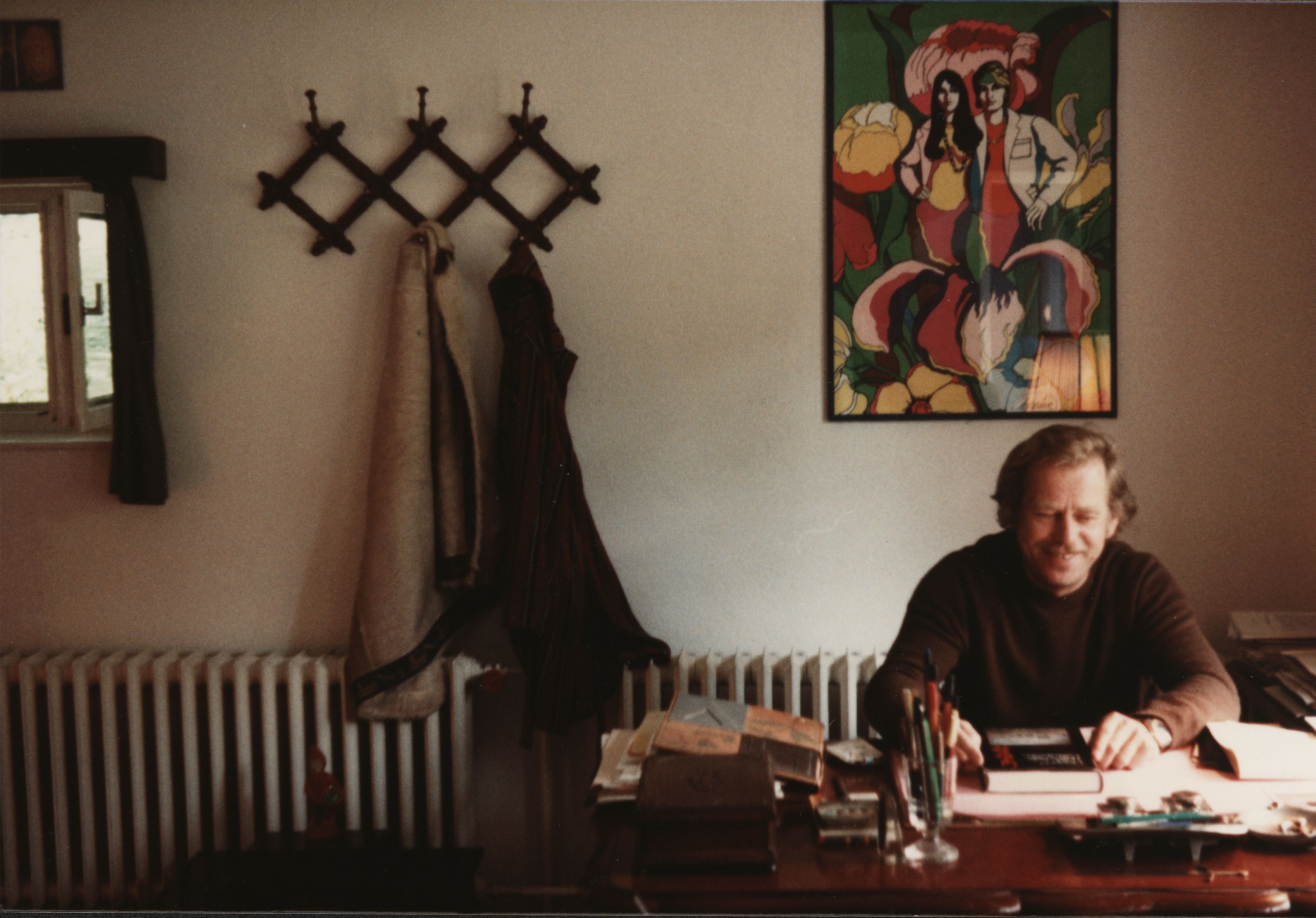The collection was established by historian Vilém Prečan after his arrival in exile in 1976, as a personal archive of dissident and playwright Václav Havel because at home all his works were constantly threatened with confiscation in police raids. Václav Havel was the most prominent personality of Czechoslovak dissent, as well as the most famous abroad, was one of the initiators and authors of Charter 77 and was also a founding member of VONS (The Committee for the Defense of the Unjustly Prosecuted). He had a strong commitment to the fight for human rights and civil liberties. Havel was among the leaders of the opposition culture. His theatrical plays were responses to the contemporary political reality and spiritual atmosphere in Czechoslovakia, most of which were published and staged abroad. Vilém Prečan collected everything Havel wrote and sent them – through various smuggling channels, mainly by diplomatic post – to the west. As a result, stage plays, articles, speeches, essays, interviews, open letters, protests, and talks on prizes were gradually added to the collection. Vilém Prečan also archived everything that was written about Havel, as well as the responses to Havel's artistic and civic activities in the western and exile media, and defamatory campaigns in the Czechoslovak official press. He collected Havel's books, which were published in samizdat editions and exile publications, as well as books translated into different languages. He also collected books and texts about him. Prečan carefully monitored all of Havel's public activities, such as important events related to Charter 77, foreign policy meetings and the literary community, as well as various actions of the regime, such as house searches, detention or arrests. Prečan also provided Havel with a connection to publishers and translators; he was responsible for the editing, proofreading, distribution, and publicity of Havel’s books. Together with other political exiles, he strengthened Havel's foreign reputation. He has continuously updated and extended the collection. After Vaclav Havel's release from prison in 1983, Havel and Prečan exchanged over two hundred letters and were in frequent telephone contact.
Václav Havel played an important role in setting up the archive, documentation and information center, which Vilém Prečan had sought since his arrival in exile. In January 1986, the Washington NGO the National Endowment for Democracy provided a subsidy to the project of a documentation center in exile. Vaclav Havel's appeal of June 29, 1985 to support the birth center played a major role in the decision to award the grant. Havel pointed out the unique importance of the work of Prečan, who, despite the lack of an institutional background, operated the center under his own direction, with the help of only close friends "almost as a private hobby". The Czechoslovak Documentation Center for Independent Literature (ČSDS) was founded in March 1986, and beginning in November 1986, was based in Schwarzenberg, Bavaria's Scheinfeld, in the premises of Karel Schwarzenberg at his own expense. Prečan handed over all his collections to the newly-established center. Many samizdat creators, including Václav Havel, supported the center and contributed to its samizdat collections. In September 2000, the Documentation Center and its collections moved to the Czech Republic. In 2003, ČSDS made a donation agreement with the National Museum in Prague.The ČSDS collections, including the Václav Havel Documentation Collection, were handed over to the National Museum.
The Václav Havel collection therefore consists mainly of materials collected by Vilém Prečan. Until the creation of the Czechoslovak Documentation Center, the collection was kept at Vilém Prečan´s home, who then donated it to ČSDS and then, in 2003, it was handed over to the National Museum. The collection is a unique testimony to the life and work of Václav Havel.

